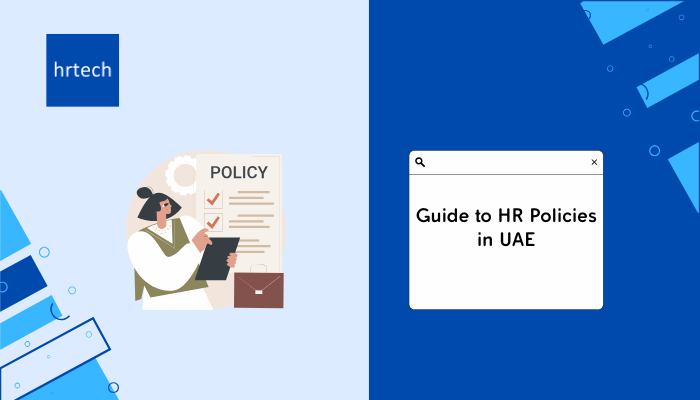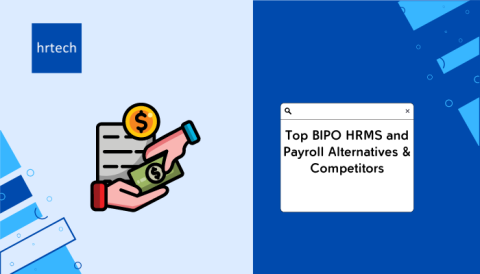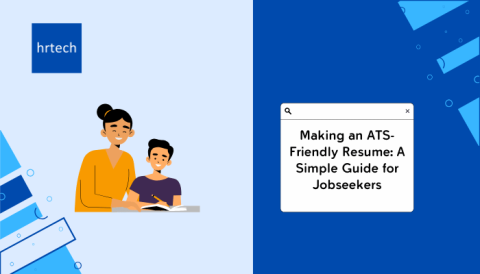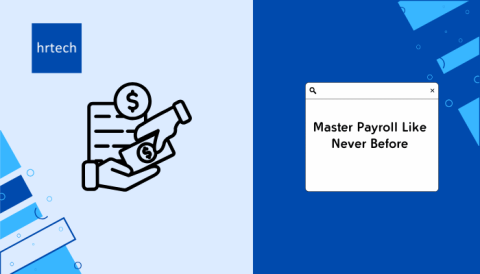Effective HR policies are essential for building a thriving workplace, especially in the UAE, where unique cultural dynamics and strict labor laws shape the work environment. The UAE’s business landscape is growing rapidly, with over 90,000 small and medium enterprises (SMEs) and numerous multinational corporations contributing to an expanding economy. For companies here, a well-structured HR policy in UAE is more than a compliance tool; it’s a way to attract, engage, and retain top talent in a competitive market.
Designing policies that uphold legal standards, like the UAE Labor Law’s stipulations on employee rights, while also creating an inclusive, fair environment for a diverse workforce. The UAE’s legal framework is extensive, covering everything from recruitment practices to compensation and benefits, making it crucial for companies to stay updated and compliant.
This guide will provide step-by-step insights into crafting compliant HR policies tailored to the UAE, including essentials on employment contracts, leave entitlements, performance management, and more. As you work through each section, you’ll find practical tips on aligning these policies with both regulatory requirements and organizational goals, helping you build a harmonious and high-performing workplace that meets the unique needs of the UAE market.
Understanding HR Policies in the UAE
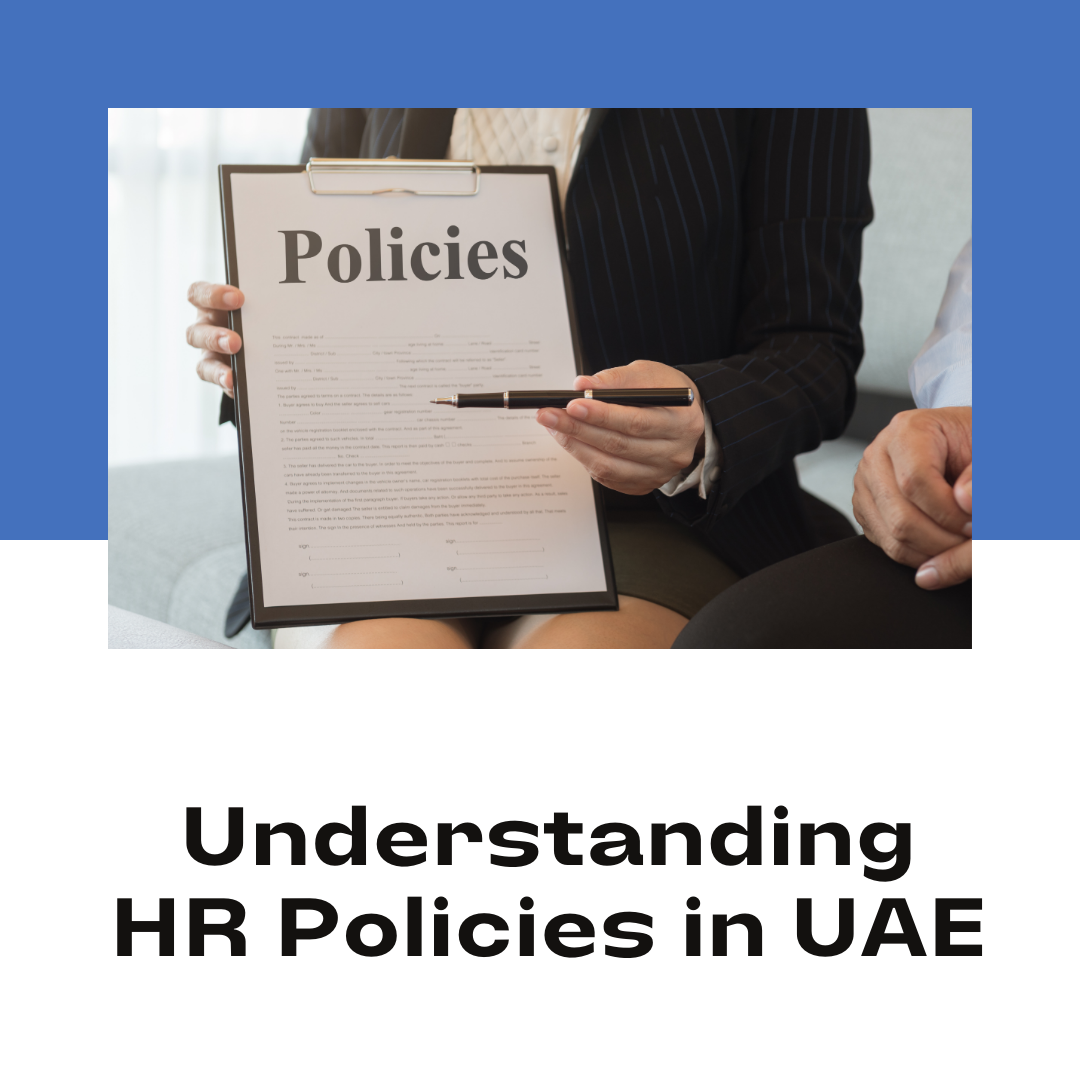
For employers in the UAE, understanding and implementing HR policies is essential not only for maintaining smooth operations but also for ensuring compliance with complex legal standards. These policies aren’t just guidelines; they are the foundational framework that shapes fair and lawful workplace practices, promoting a culture of respect, transparency, and productivity.
According to a study by Michael Page Middle East, around 50% of job applicants in Dubai and Abu Dhabi reported that their productivity stayed the same or even increased while working remotely.
By establishing clear expectations and consistent practices, HR policies help employers manage recruitment, compensation, performance, and termination in a structured and compliant manner, minimizing misunderstandings and fostering trust between management and staff. To further enhance these processes, businesses can leverage the expertise of top HR consulting firms in the UAE and Middle East, ensuring that their policies are both effective and aligned with regional best practices.
Key Points on UAE HR Policies and Compliance:
- Foundation in UAE Labor Law: The core of HR policy in UAE rests on the UAE Labor Law, which defines essential employment rights and responsibilities, covering aspects like contracts, wages, working hours, and employee benefits.
- Supporting Legislation: Updates through Federal Decree-Law and Federal Decree-Law No. 49 of 2022 introduce modern approaches like flexible work arrangements and innovative HR practices, aligning with the UAE’s progressive stance on labor relations.
- Role of the MOHRE: The Ministry of Human Resources and Emiratization (MOHRE) enforces these laws, providing dispute resolution services and ensuring that companies adhere to regulations, which is crucial for maintaining harmonious employment relations and reducing legal risks.
- Detailed Guidance through Ministerial Resolutions: Ministerial Resolutions complement the Labor Law by detailing specific workplace practices, from health and safety to dispute protocols, ensuring a comprehensive alignment of business practices with legal standards.
- Staying Updated on Legal Changes: Employers must remain vigilant about legislative updates to capitalize on new employment practices and ensure continued compliance, which protects against potential legal disputes and enhances workplace satisfaction.
Understanding and following a solid HR policy in the UAE isn’t just about compliance; it’s about creating a workplace that supports both legal requirements and employee well-being, contributing to organizational success in the UAE’s evolving business landscape.
Developing UAE-Compliant HR Policies
When crafting HR policies in the UAE, understanding and adhering to local laws and cultural norms is essential. This requires a comprehensive approach that integrates recruitment, termination, compensation, benefits, and overall cultural alignment.
According to Qureos 85% of the United Arab Emirates’ labor force is demotivated and disengaged at work.
Recruitment and Termination Procedures
Recruitment in the UAE demands compliance with specific legal requirements. Employers must advertise job openings on the Ministry of Human Resources and Emiratization (MOHRE) website. Obtaining crucial documents, such as the Establishment Labor Card and the Establishment Immigration Card, is mandatory.
Additionally, hiring involves securing employment visas and conducting mandatory medical exams, culminating in a signed employment contract outlining job terms and benefits. This ensures transparency and fairness from the beginning.
On the other hand, termination procedures need to be clearly defined in HR policies. This includes notice periods, severance pay, and end-of-service benefits, all adhering to UAE Labor Laws. Such clarity protects both employers and employees, preventing disputes.
Ensuring Policies Align with Organizational Culture
Aligning HR policies with the organizational culture is equally vital. Policies should clearly define the rights and responsibilities of both employers and employees, fostering a culture of mutual respect and understanding. This harmony leads to a productive work environment, mitigating misunderstandings.
Adapting to Evolving Work Trends
As work trends continue to evolve, HR policies must also adapt. The demand for flexible work arrangements, especially post-pandemic, has grown. In fact, studies show that over 60% of the UAE workforce now wishes to work remotely full-time.
HR policies should reflect these preferences to stay relevant, ensuring they accommodate both employer and employee needs.
Review and Revise Policies Regularly
It’s not only about creating HR policies but also about maintaining them. Regular review and revision of policies ensure they remain effective and compliant with any changes in laws or social expectations. This helps organizations adapt to employment trends in the UAE.
Employee Contracts and Working Conditions
Employment contracts in the UAE must clearly specify job terms and must be signed in a language understood by the employee. To streamline the recruitment process and ensure clarity in employment contracts, businesses can utilize top applicant tracking systems in UAE and Dubai, which help manage candidate information and ensure all contractual details are accurately documented and easily accessible.
Standard Working Hours and Overtime Regulations
Standard working conditions in the UAE generally consist of a maximum of eight hours a day, totaling up to 48 hours a week. However, specific industries may have variations.
Employers should compensate employees for any time worked beyond these hours through overtime pay, calculating it at a minimum of 1.5 times the regular hourly wage.
Wage Administration and Compensation
The UAE mandates rest days and public holidays as stipulated by labor law, ensuring employees have essential downtime. The compensation structures should be fair and competitive, aligning with UAE labor regulations to attract and retain talent.
This includes specifics about wages, allowances, and bonuses. Compliance with systems like the Wage Protection System (WPS) ensures legal adherence and safeguards the rights of employees.
It’s also vital for employment contracts to include provisions for end-of-service benefits such as gratuity, reflecting the employee’s tenure. Confidentiality and non-compete clauses may also be part of the contracts to protect the employer’s interests.
Employers need to be vigilant and ensure that employment practices align seamlessly with UAE labor laws to maintain a secure and transparent working environment.
Leave Entitlements and Employee Welfare
In the UAE, understanding and implementing comprehensive leave entitlements along with employee welfare measures is essential for any HR policy. This framework ensures that employees’ well-being is prioritized, thereby boosting productivity.
To further enhance employee welfare and streamline HR processes, businesses can explore the hrtech Marketplace, which offers a variety of solutions to optimize leave management and employee benefits, ensuring compliance and improving overall workplace satisfaction.
Types of Leaves: Annual, Sick, Maternity/Paternity
Let’s delve into the various types of leave as per UAE labor law and how they cater to different employee needs.
Annual Leave : This is a crucial aspect of maintaining work-life balance. Employees are entitled to 30 days off after a full year of continuous service.
For those with service between six months to one year, they can avail two days per month. It’s worth noting that even during the probation period, leave is accrued, although it is not permitted to be taken during this time.
Employers have the right to decide the timing of annual leave, but they must acknowledge the employees’ accrued entitlements.
Sick Leave : Employees can take up to 90 days of sick leave each year based on a tiered payment system, contingent on providing a medical certificate from a licensed healthcare provider.
To qualify, employees need to have been with their employer for at least three months, ensuring the provision of this essential benefit acknowledges employee loyalty.
Maternity and Paternity Leave : Balancing work and parenthood is made easier with supportive leave policies.
Mothers are entitled to 60 days, with 45 fully paid, while fathers are given five fully paid days to engage in the early stages of parenthood. In cases where complications arise from childbirth, mothers can avail an additional 100 days of unpaid leave with appropriate medical certification.
Apart from leave, employee welfare is amplified through occupational health and safety mandates. Employers are responsible for ensuring a safe workplace environment, which includes conducting risk assessments and providing necessary safety training.
Information on rights and safety measures must be readily available and effectively communicated within the workplace.
According to Marathon Health Rising healthcare costs are also affecting employees significantly. Our research on employer-sponsored plans reveals that one in five employees now spends over 10% of their annual income on healthcare, covering both premiums and out-of-pocket expenses.
Diversity, Inclusion, and Equal Treatment
In the diverse and multicultural environment of the UAE, fostering diversity and inclusion through robust HR policies is not just a legal necessity but a competitive advantage. Non-discriminatory recruitment procedures are pivotal in this regard.
With the UAE’s revised Labor Law explicitly prohibiting discrimination based on race, color, sex, religion, national or social origin, or disability, employers are obligated to ensure recruitment processes are impartial. To support this, businesses can implement the best HR and payroll management software in Dubai, UAE, which helps streamline hiring processes while ensuring compliance with legal requirements and promoting fairness in recruitment practices.
Non-discriminatory recruitment procedures
Implementing blind recruitment practices, which remove identifiable information from resumes, allows hiring decisions to focus solely on candidates’ qualifications and skills. This method not only promotes equal opportunities but also reflects a company’s commitment to inclusivity and fairness.
Implementation of inclusive policies
Adopting flexible work policies, like remote work options or flexible working hours, significantly enhances female representation and overall diversity in the workforce.
This approach aligns with successful models, such as the Emirates Group’s strategy of recruiting talent from over 160 nationalities, thus enriching company culture and supporting the UAE’s demographic diversification rule.
Equal treatment in workplace processes
Ensuring equal treatment is another critical aspect. The UAE Labor Law’s provisions for equal pay emphasize the importance of fair treatment, ensuring women receive equivalent compensation for work of equal value as their male counterparts.
Regular audits and feedback mechanisms should be in place to spot and correct biases, ensuring that career advancement opportunities are based on merit alone.
Moreover, companies should establish support systems, including mentorship programs, mental health resources, and anonymous feedback platforms, to create an environment where employees feel valued and respected.
Leadership commitment is vital in setting a tone of inclusivity from the top, encouraging a workplace culture that embraces diversity. By effectively implementing and monitoring these initiatives, companies can enhance their reputation and attract top talent, contributing positively to the UAE’s dynamic labor market.
Enhancing Employee Performance and Growth
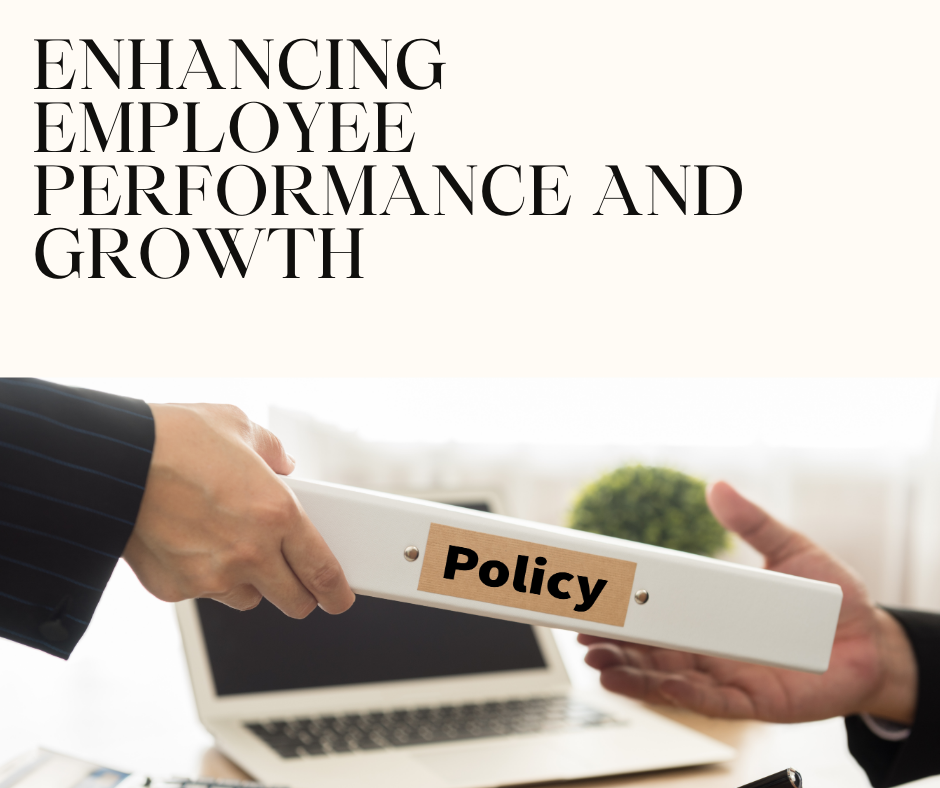
Performance management and development are critical components in shaping effective HR policies and fostering a productive work environment in the UAE. A robust performance appraisal system is at the heart of this process, which helps to clearly articulate performance expectations and facilitate regular feedback.
Structuring performance appraisal systems
A well-structured performance appraisal system aligns individual roles with organizational objectives, ensuring that employees understand their responsibilities and how they will be assessed.
By setting precise Key Performance Indicators (KPIs) and establishing a transparent process for performance evaluations, organizations can effectively guide promotions and career advancements.
This can be achieved by utilizing standardized evaluation criteria, involving multiple evaluators, and leveraging technology to minimize subjective biases and ensure fairness. For instance, AI-powered performance management software enhances feedback mechanisms and streamlines evaluations, promoting a culture that values results over mere presence.
Fostering employee development and growth
Cultivating a feedback culture is integral to supporting employee development. Training managers in coaching and providing constructive feedback empowers employees to identify areas for improvement and celebrate achievements, fostering motivation to align with strategic goals.
A customized approach to performance management enhances its effectiveness by addressing individual needs through personalized development plans and tailored feedback.
Training and development opportunities
Training and development programs are essential for aligning employees with personal growth and organizational goals. These initiatives not only refine skills but also reflect the company’s commitment to its workforce.
They encompass various activities, from career advancement training to mentorship programs that pair experienced employees with newcomers. By fostering a culture of continuous learning through ongoing training, workshops, and online courses, employees can stay updated with the latest skills and industry trends.
Additionally, integrating wellness programs, such as mental health support and wellness workshops, boosts employee well-being and productivity.
Linking development opportunities to performance-related incentives creates a motivated workforce striving for excellence. Employers can offer bonuses for achieving specific objectives to align individual efforts with organizational goals, promoting continuous improvement and job satisfaction.
Compliance and Legal Considerations
Regular review and updating of HR policies are pivotal to ensuring compliance with the UAE’s labor laws, mitigating risks, and enhancing the overall effectiveness of HR management. The UAE’s legal landscape is ever-evolving, with recent examples like the Federal Decree-Law No. Failing to adhere to such updates can lead to dire consequences, including financial penalties, recruitment bans, and reputational harm.
Additionally, aspects such as the accurate calculation and prompt payment of end-of-service benefits remain critical under these laws. The complexity of these legal requirements is further compounded by sector-specific regulations and the unique demands of free zones within the UAE, necessitating a thorough review of HR policies to accommodate these nuances.
Employers should engage HR experts and legal advisors to ensure their policies are compliant with the latest legal requirements, such as those stipulated by the Federal Law. It’s also recommended to document policy changes meticulously and communicate these updates through training and policy handbooks.
Moreover, effective grievance and conflict resolution are essential components of HR policies in the UAE. Procedures should be clear and transparent, with defined steps for raising and addressing grievances.
Managers should be trained to handle these situations promptly and fairly, thus fostering a positive and trustful work environment.
For unresolved issues, involving the Ministry of Human Resources and Emiratisation (MOHRE) can be a viable route, emphasizing the importance of having robust mechanisms in place.
Regular audits are advised, using HR software for tracking efficiency. Staying proactive in these areas not only ensures compliance but also positions organizations to better align with best practices and evolving legal frameworks.
Strategic HR Leadership in the UAE
Managing HR policies effectively means more than just ticking off compliance checkboxes. It’s about crafting an environment that supports employee well-being, drives engagement, and fosters long-term organizational growth. HR policy in UAE is evolving rapidly, making it essential for companies to stay agile, informed, and proactive.
The UAE’s workforce is incredibly diverse, with nearly 88% of the population comprising expatriates, making a strong case for HR policies that emphasize inclusivity, fairness, and equal opportunities. By focusing on both compliance and employee satisfaction, companies can drive high retention rates, boost productivity, and foster a culture that aligns with UAE’s dynamic market standards.
A forward-thinking HR policy in UAE should also account for anticipated changes in labor laws and market dynamics. This proactive approach to policy-making ensures that companies remain competitive, attractive, and compliant. Adapting to these advancements and focusing on employee well-being helps UAE businesses foster a sustainable growth environment.
Want to improve your HR policies with easy-to-use hrtech? Contact us today to see how our solutions can simplify your HR tasks and help build a workplace your employees will enjoy.
